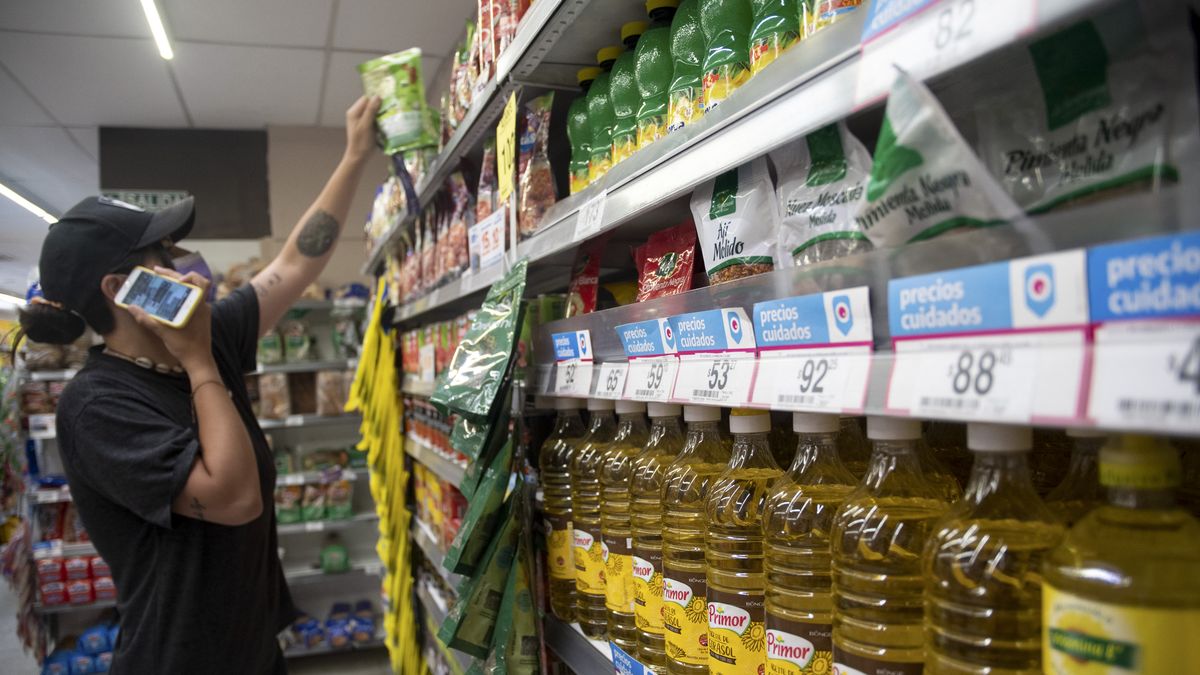“I am very satisfied, they were really arduous months and this is not for what the negotiation was for or for the companies, but it is for what the hegemonic media said: in these three months we had neither shortage nor exit Rodrigazo, nor price explosion, that did not happen for more than we spent three months supporting those forecasts, “he said.
Last night, The national government made official the list that includes 1,321 products that make up the Care Prices program, and which will be in force until April 7, as was officially reported.
The price stabilization program is in effect annually with a quarterly review. This first stage contemplates an average monthly guideline of 2% for all products and will be in effect until April 7.
The new list includes warehouse, cleaning, bookstore, perfumery, personal care and hygiene items, items for babies, pets, fresh (dairy, cold cuts, fresh pasta, empanadas and cake tops), frozen items and beverages, among others.
From the renewed list, a wide range of essential products for everyday purchases and consumption stands out, such as 45 varieties of milk (long life, children’s, flavored, fluid and powdered), 22 presentations of herbs, 6 mold bakeries , 24 types and sizes of disposable diapers and 33 varieties of dry pasta packages, among other essential items.
The products of Precious Care are sold throughout the country, in the main retail and wholesale supermarket chains.
Feletti announced that the list will soon be formally communicated to supermarkets and large wholesalers for the implementation of the program and he trusted that “it will be successful.”
“I feel really satisfied with this basket, it is compatible with the consumption of the average Argentine, which is what was sought,” he said.
In this context, he announced that next weekend they will begin with the surveys that the Secretariat does every Friday and warned that “at that point we are going to be very hard in complying with” the new program.
“I think it will be fulfilled but we do not want there to be price distortions in the trading chains, because we work to ensure a contained price, not so that the margin ends up being left to a trading company. In that we are going to be very energetic,” he remarked.
He said that the program will be “easier in the large supermarket chains,” and anticipated that next week they will convene “self-services with up to three mouths and more than three mouths”, with the aim of establishing “a differential margin by trade size “.
In dialogue with Télam, the president of the Federation of Warehouses of the province of Buenos Aires (FABA), Fernando Savore, said that “we are waiting to be summoned to know how our work continues within the program, we are 26 thousand shops in the province of Buenos Aires and more than 70 thousand in the country “.
He pointed out that “the hypermarket represents 30% of the commercialization of food in our country, the other 70% is distributed in our sector and wholesalers” for which he said that “there is a lot of will” to agree on the implementation of the program.
Regarding the profitability margin that local businesses need, he said that “the operating cost of our businesses is 17% when we talk about electricity, rentals and employees, so we propose (the necessary margin) is 22%”.
He said that the 6% quarterly increase in prices agreed to in the program “is logical, that way companies have oxygen” because when “a merchandise is held at the same value for six months, we end up with companies receding the product or they change the packaging “.
This morning, Feletti affirmed that “in macroeconomic terms the basket has to act as an inflationary anchor, as a buffer against the rise in prices.”
In the short term, he pointed out that it remains “to set up the wheat and corn trust and to see how we implement these seven cuts (of barbecued beef) that cannot be exported so that they can be marketed in the most massive way possible, as happened in the parties with the five cuts that were protected “.
“If we manage to consolidate a fresh basket and a gondola basket, a regulated basket of diverse foods, there I would feel very happy with the management because we could meet the structural objective which is to level income with the consumption of the food basket, achieve that the basket Food ceases to be a weight in popular income and is ordered, it is foreseeable, that is the great bet of that process “, concluded the secretary.
Source From: Ambito
David William is a talented author who has made a name for himself in the world of writing. He is a professional author who writes on a wide range of topics, from general interest to opinion news. David is currently working as a writer at 24 hours worlds where he brings his unique perspective and in-depth research to his articles, making them both informative and engaging.




